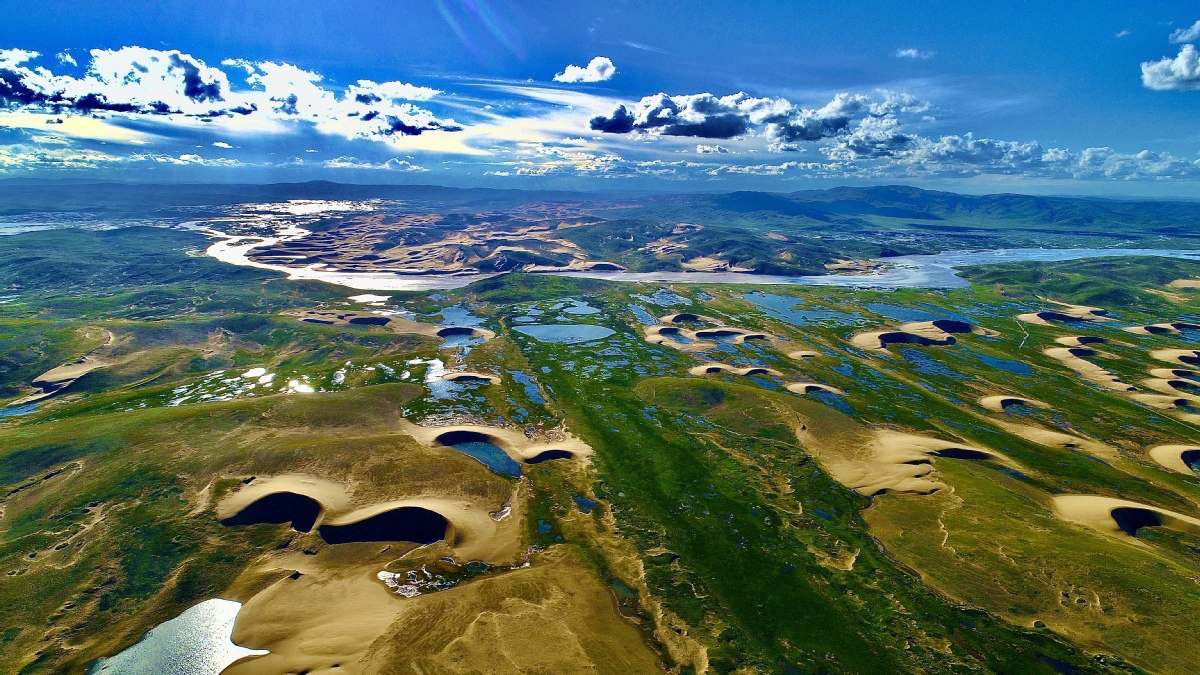China, EU commit to leading climate action


Joint communique vows protection, conservation and restoration efforts
China and the European Union reaffirmed their commitment to lead climate action in a joint communique issued on Monday, and vowed to make joint efforts to facilitate an ambitious, realistic and balanced post-2020 global biodiversity framework.
Released as the COP 15 United Nations biodiversity conference opened in Kunming, capital of Southwest China's Yunnan province, the communique was a result of the second High-Level Environment and Climate Dialogue between China and the EU.
Vice-Premier Han Zheng and European Commission Executive Vice-President Frans Timmermans discussed various aspects of global climate and biodiversity issues during the dialogue on Sept 27, according to the communique.
Acknowledging the scale of the biodiversity crisis and the urgent need to act, both sides stressed that biodiversity loss is accelerated by climate change while itself exacerbating it.
The communique said they also agreed that China and the EU should lead by example and had committed to stepping up action to protect, conserve and restore biodiversity and ecosystems, noting that "our well-being and prosperity rely on a healthy nature".
"Both sides agreed to make joint efforts to facilitate an ambitious, realistic and balanced post-2020 global biodiversity framework to be adopted at the COP 15," it said.
They also stressed their willingness to make goals included in the framework clear, feasible and measurable, saying they hope to incorporate appropriate mechanisms for monitoring, reporting and review in the framework, as well as means to support implementation.
The largest UN gathering on biodiversity in a decade, COP 15 is tasked with elaborating on the post-2020 global biodiversity framework and identifying new protection goals through 2030.
It will last till Friday and then continue in the first half of next year.
According to the communique, Han and Timmermans said China and the EU are committed to showing climate action leadership.
To ensure the realization of its goals of peaking carbon dioxide emissions before 2030 and going carbon neutral before 2060, Han said China will soon release a policy system dubbed"1 + N", with 1 representing a general guideline and N specific action plans for different industrial sectors, according to the communique.
"China will strictly control coal-fired power generation projects, and strictly limit the increase in coal consumption over the 14th Five-Year Plan period (2021-25) and phase it down in the 15th Five-Year Plan period," Han was quoted as saying.
He also said China will step up support for other developing countries in developing green and low-carbon energy, and will not build new coalfired power projects abroad.
The communique said the two sides discussed a series of matters in a "constructive and positive manner", including technology transfer and capacity building in developing nations.
Both sides will cooperate to promote a successful COP 26 UN climate change conference, which will be held from Oct 31 to Nov 12 in Glasgow, United Kingdom.
Dimitri de Boer, chief representative for China of ClientEarth, an environmental law charity, lauded the communique as "an important achievement in itself", considering the complex geopolitical situation today.
It explicitly mentions that the high-level dialogue is a platform not just to exchange best practices, but more importantly to enhance ambitions and actions.
"This should help to give confidence to other countries that these important regions will continue to increase their climate and environment ambitions over time," De Boer said.
He said the communique includes important new areas of climate cooperation, including coal transitions and non-carbon dioxide greenhouse gases, including methane.
"While they may all seem obvious priority areas in the fight against climate change, this is the first time that they are recognized as priority areas of EU-China cooperation," he said.
De Boer said the communique reconfirms the positive environmental relations between China and the EU, which are critical in the context of the global climate and biodiversity crises.




































